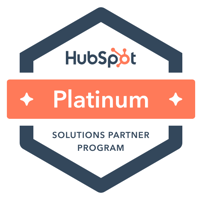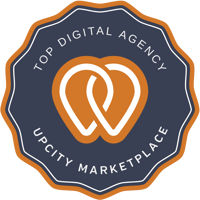Let's discuss what you should know about CRM automation as you implement it within your business. But first things first: we need to understand that CRM software and marketing automation are not necessarily interchangeable terms.
CRM Software and Marketing Automation: What are the Differences?
In many cases, a CRM by itself may not be enough to automate all of the appropriate sales and marketing processes within your strategy. With that in mind, it's good to know the key differences between the function of marketing automation software and your CRM.
CRM Platform
As its name implies, your CRM system will basically help your sales team manage their interactions with customers in a consistent, streamlined manner. For example, here are a few functionalities that CRM platforms typically offer:
- Automatic interaction logging.
It's important to keep a record (to the extent possible) of every interaction a consumer has with your brand. This information can become extremely valuable during future interactions with the consumer. This is especially true if they're moving through the sales funnel, but haven't yet arrived at a purchase decision. Your CRM system can also save precious time for sales reps. It can automatically log each interaction with the consumer, either via phone, email, or other communication channels.
- Automated data entry.
Many sales reps spend almost one-fifth of their working hours on data entry. That's time that could be spent on nurturing leads and closing sales!
Robust CRM platforms enable reps to focus on the more important aspects of their job by implementing data automation in various ways. For instance, if your company uses chat-bots to engage with prospects, then the data you collect should be automatically transferred over to your CRM for enhanced transparency into sales and service-related questions.
- Personalized email templates and sequences.
Once you set up an email template that's personalized for a specific user segment, your sales reps won't have to start from scratch each time they want to send out a message to a prospect. Of course, that principle carries over to email sequences as well.
Marketing Automation Software
Your CRM system is usually geared towards prospects and leads that are already in your contact database. But other automated marketing tools have the objective of delivering your message to a broader audience of consumers. These may include individuals that are unfamiliar with your brand, as well as leads who have shown a measure of interest in your product or service.
Common examples of marketing automation include:
- Customizable workflows.
Automation software often allows users to develop streamlined workflows for their sales and marketing teams. These workflows may target specific audience segments. It can make the overall process of content creation and delivery faster and less complicated.
- Lead nurturing features.
These may include scheduled emails that are sent out according to specific trigger actions that consumers take. These can even include emails sent out at regular intervals to brand subscribers.
- Analytics.
Your automation software may also include built-in analytics tools. These can help you to measure campaign performance in terms of predefined KPIs.
There may be some overlap between your CRM platform and marketing automation software. However, you may find that the best results come from incorporating both tools into a unified approach to your sales process. Now, let's talk about how you can maximize your CRM automation capabilities for business growth.
How to Optimize Your CRM Automation
There are a ton of activities within your CRM that you could automate for your sales team. Far too many to discuss in a single article. Still, the bottom line is that you want to automate those tasks that will have the greatest impact on tangible outcomes. In other words, focus on task automation that will lead to higher sales. Here are just a few recommendations to consider:
Automate contact segmentation.
Do you have a massive database of contacts? It can be a real hassle to manually sort each entry into the appropriate user segment. However, automated segmentation can almost completely take away that pain point. You'll have to do some work on the front end by setting up your automation parameters, of course, but the reward will be well worth the effort!
Implement CRM entry triggers from purchases and form submissions.
Anytime a customer buys one of your products - or just fills out a lead capture form on your website - you'll want to add that customer's information to your CRM system. Customers who have previously purchased from your company, or have signed up for a newsletter or content download, should be top priorities for your sales team. Automatically adding them to your CRM (perhaps with automated alerts for your reps) can help you to ensure that no warm lead inadvertently slips through the cracks.
Set up automated reminders.
Your sales reps have a lot on their plates. It can be easy for them to occasionally forget about an appointment with a lead or prospect. Here again, CRM automation can come to the rescue! You can set up follow-up alerts and reminders for your reps. You can even teach them how to set up such alerts for themselves. With such alerts in place, no one will be caught off-guard when it comes time to perform a lead nurturing activity.
Integrate your CRM with other automation tools.
No matter how robust your base CRM system is, odds are it won't contain all the automation features you need for your business. This is why integration with other software solutions and apps is so useful. Whether you leverage built-in or third-party integrations (or both), you can leverage an entire "ecosystem" of automation software into a competitive advantage for your company.
Would you like to learn more about how to implement CRM automation for sustainable business growth? Feel free to reach out to our team of experts at OverGo Studio today for a free consultation. We'd be happy to help you take your automation game to the next level!
Take advantage of our free Hubspot CRM Configuration to start modernizing your sales process. This is a limited-time offer where we will design a sales pipeline specifically for your business. Start generating more revenue and improve your close rates by building your first high-performing sales pipeline on HubSpot at no cost. Simply schedule a discovery session with our team of HubSpot experts.


